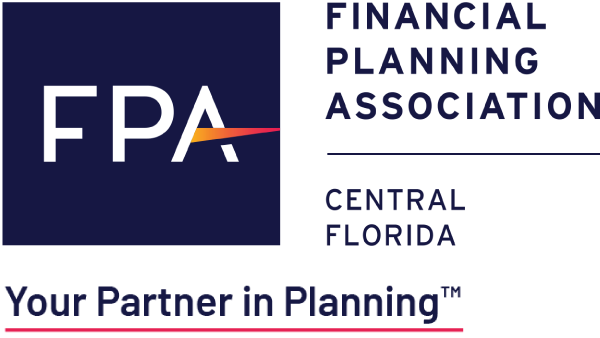Financial Planning Checklist for BABY BOOMERS
Each generation has its own distinct set of financial issues to grapple with — money-related priorities to meet, challenges to overcome, dreams to fulfill and values to act upon. For Baby Boomers, the generation born between 1946 and 1964, many of those issues revolve around retirement.
For them, it’s not only about addressing immediate financial needs but also taking the appropriate planning steps to position themselves for a financially secure next phase of life, whether or not the next phase involves full retirement, continuing to work, or something in between. Add to that concerns about aging parents and “boomerang” adult children, and you get an idea of just how unique and complex financial planning can be for members of the Boomer generation.
The following checklist details 15 key planning steps that financial professionals recommend Boomers consider taking as they contemplate how their 60s, 70s, 80s and beyond might unfold.
√ Envision what comes next. What’s on your retirement bucket list? Will you stay put or move someplace else? What type of housing do you see yourself wanting as you age? Will you retire fully or keep working? By answering questions like these about how you want your retirement to unfold, you’re creating a vision for your next phase of life. That vision can provide incentive to take the steps specified below.
√ Save with a sense of urgency. With retirement looming, it’s never been more important to stay on course with your retirement savings — or to make up for lost ground. Uncle Sam gives people 50 and over a carrot to save more in the form of “catch-up” provisions that raise the limit on the amount a person can contribute to a tax-deferred retirement plan. Take advantage of that and other retirement savings tax breaks, suggests Certified Financial Planner™ Ellen R. Siegel, founder of Ellen Siegel & Associates in Miami, FL.
√ Start attacking your bucket list now. If you’re healthy and have the resources along with the desire, there’s no better time than the present to start fulfilling your dreams and crossing items off the list.
√ Take stock of income sources and amounts. Which sources [Social Security, pension, 401(k) distributions, IRA distributions, stock dividends, etc.] will supply income for your retirement, how much will they supply and most importantly, will they supply enough to let you live the lifestyle you desire? It’s important to get a handle on retirement income, including Social Security benefits. Delaying benefits from age 62 to the full retirement age of 66 can generate 33% more in monthly Social Security income, while waiting until age 70 yields a 76% jump in income, according to an analysis from the Center for Retirement Research at Boston College.
√ Spend time analyzing spending. Track your monthly spending to give yourself a rough idea of how much income you’ll need for the next phase of life.
√ Work out a work plan. Do you want to keep working? Do you need to keep working? Among employed Baby Boomers, two-thirds plan to or already are working past age 65 or do not plan to retire at all, according to a Transamerica study. Whether it’s a matter of want or need, Siegel suggests putting forethought into your intentions about work. Also have a backup plan for if you’re planning to work but can’t, due to poor health or other reasons.
√ Consider an annuity — if it’s the right fit. For people who want a pension-like stream of guaranteed income, an annuity underwritten by an insurance company may make sense, Siegel suggests. Some annuities turn on the income spigot immediately, once the contract holder pays the insurance company a lump sum; others start providing income at a predetermined point in the future. Consult a financial professional to determine if you’re a good candidate for an annuity, and if so, for help figuring out which type is best for you.
√ Recognize the real risks. What happens to you financially if you live to the ripe old age of 95? What if you plan to continue working but can’t? What happens if the inflation rate spikes, prices for goods and services jump and you’re on a fixed income? These are genuine risks that need addressing in advance, says Leon LaBrecque, JD, CFP®, CPA, CFA, of LJPR Financial Advisors in Troy, MI.
√ Take aim at debt. Carrying an unmanageable debt burden into retirement can hamstring a person financially, particularly if they’re on fixed income, says Siegel. Start by paying down accounts with the largest balances and the highest interest rates.
√ Plan for health care and long-term care needs (and costs). According to U.S. government stats, about 70% of people will require some form of long-term care in their lifetimes. Meanwhile, total projected lifetime health care premiums and out-of-pocket expenditures for a healthy 65-year-old couple retiring in 2016 project to about $377,000 in today’s dollars. Medicare alone won’t cover those costs in most cases. Which is why, according to Siegel, people need to plan in advance for how they’re going to cover those costs. Health insurance, along with Medicare supplemental insurance, plus some form of long-term care insurance (stand-alone or as part of a life insurance policy or annuity contract) might be the answer, she says.
√ Get your affairs in order. Pull together all your important documents, beneficiary and account information for investments, credit cards, retirement accounts, bank accounts, annuities, life insurance policies, Social Security and pension statements, real estate property, personal property and debts, along with estate documents like your will, powers of attorney and living will, suggests Certified Financial Planner™ Alexander G. Koury of Householder Group Estate and Retirement Specialists in Scottsdale, AZ. Not having one’s affairs in order can create quite a mess for family members and heirs.
√ Brace for the BOOMERang. Some 61% of parents with adult children provided financial assistance to an adult child in the preceding 12 months, according to a Pew Research Center study. Supporting an adult child financially “can interrupt your life, your career and your retirement, and it costs a lot of money you weren’t planning to spend,” observes Siegel. Is this a responsibility you’re prepared to take on financially and emotionally?
√ Prepare for aging parents. Close to 30% of adults who have a 65+ parent actually provided that parent with financial assistance in the preceding 12 months, according to the Pew study. Meanwhile, another study by the MetLife Mature Market Institute found that the average worker sacrifices more than $300,000 in lost wages, workplace benefits and Social Security benefits in caring for an aging parent. Is this a responsibility you’re prepared to take on financially and emotionally?
√ Plan now. If you don’t have a financial professional to rely upon to provide objective, on-target advice and to help develop a formal plan that includes strategies for handling many of the aforementioned financial issues, now is the time to get one. With a Certified Financial Planner™, you’re getting a financial professional who specializes in big-picture planning, based on your individual circumstances, needs and goals. A CFP® “can help you put together a retirement and investment strategy to help protect your assets,” explains Koury, “help you maintain your lifestyle, and make sure you don't run out of money in retirement.”



